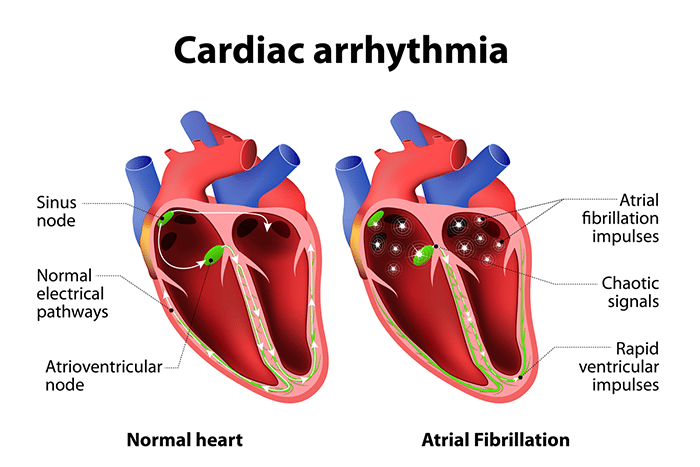What is this disease all about?
Arrhythmia is a condition characterized by an irregular heartbeat, which can be tachycardia, bradycardia, or erratic. Arrhythmia can be caused by a variety of circumstances, including heart disease, electrolyte imbalances, pharmaceutical side effects, or genetics. Symptoms can include palpitations, dizziness, shortness of breath, chest discomfort, and fainting.
Electrocardiograms (ECGs), Holter monitoring, and other diagnostic methods are commonly used to diagnose arrhythmia. Treatment options vary by type of arrhythmia and may include drugs, lifestyle changes, or surgeries such as catheter ablation or pacemaker implantation. Monitoring or other diagnostic tests. Treatment options vary greatly and may include drugs, lifestyle adjustments, or sophisticated treatments like as catheter ablation or pacemaker installation, depending on the kind and severity of the arrhythmia.
References
"Arrhythmia: Types, Causes, Symptoms & Treatment." American Heart Association, https://www.heart.org/en/health-topics/arrhythmia. Accessed 15 Sept. 2024. "Arrhythmia." Mayo Clinic, https://www.mayoclinic.org/diseases-conditions/arrhythmia/symptoms-causes/syc-20350681. Accessed 15 Sept. 2024.
"Arrhythmia." National Heart, Lung, and Blood Institute, https://www.nhlbi.nih.gov/health-topics/arrhythmia. Accessed 15 Sept. 2024.
Written by Darshana Srivatsan from MEDILOQUY



